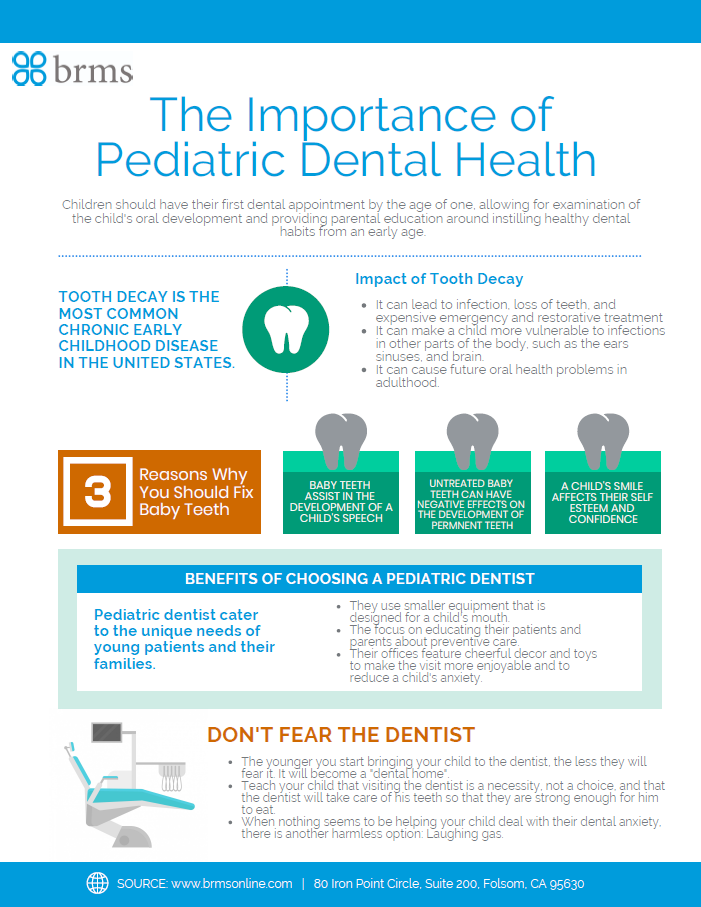In this article, we will explore the important role that pediatric dentists play in promoting dental health in children. Pediatric dentistry is a specialized branch of dentistry that focuses on providing dental care to children from birth through adolescence. These dentists serve as invaluable resources for parents, offering guidance on proper oral hygiene practices and monitoring dental development. It is recommended that children have their first dental visit soon after the appearance of their first tooth or by their first birthday, as early oral examinations are crucial for detecting and preventing tooth decay. Pediatric dentists receive extensive training through postgraduate residency programs after completing dental school, equipping them with the necessary skills to diagnose and treat oral diseases, perform surgical procedures, and provide emergency dental care. With a projected 20% growth in job demand from 2014 to 2024, the career outlook for pediatric dentists is promising.
1. What is Pediatric Dentistry?
– Definition and focus of pediatric dentistry
Pediatric dentistry is a specialized branch of dentistry that is dedicated to providing dental care to children from birth through adolescence. It focuses on the unique dental and oral health needs of children, and aims to promote proper dental health habits from a young age.
– Age range of patients
Pediatric dentists typically provide care for children from infancy through their teenage years. The age range of patients can vary, but generally includes children from birth to around 18 years old.
– Importance of pediatric dentistry in promoting dental health
Pediatric dentistry plays a crucial role in promoting dental health and preventing oral diseases in children. By providing early and regular dental care, pediatric dentists can identify and address any potential issues before they become more serious. They also educate children and parents on proper oral hygiene practices, helping to establish good habits that will benefit their dental health throughout their lives.
2. The Role of Pediatric Dentists
– Providing dental care to children from birth through adolescence
Pediatric dentists are specifically trained to provide comprehensive dental care for children of all ages. They have the knowledge and expertise to address the unique dental challenges that children face at different stages of development. From routine check-ups and cleanings to more complex treatments, pediatric dentists are equipped to handle the dental needs of children from infancy through adolescence.
– Acting as a resource for parents
Pediatric dentists also serve as a valuable resource for parents. They can provide guidance and support in matters related to children’s oral health, such as proper brushing and flossing techniques, diet and nutrition recommendations, and even guidance on handling common dental issues such as teething or thumb-sucking habits. By consulting with a pediatric dentist, parents can ensure that they are providing the best possible care for their child’s dental health.
– Educating children and parents on oral hygiene practices
Another important aspect of the role of a pediatric dentist is educating both children and parents on proper oral hygiene practices. Pediatric dentists can teach children the importance of regular brushing and flossing, as well as the proper techniques to ensure effective oral hygiene. They can also provide parents with guidance on maintaining good oral health habits at home, such as proper nutrition and the use of fluoride.

3. Importance of Early Dental Visits
– Recommended age for a child’s first dental visit
It is recommended that children have their first dental visit after the presence of their first tooth or by their first birthday. This early visit allows the pediatric dentist to assess the child’s oral health and begin establishing a positive relationship with the child and their parents.
– Benefits of early oral examination
Early oral examinations are crucial for detecting any potential dental issues in their early stages. By identifying dental problems early on, pediatric dentists can intervene and provide appropriate treatment to prevent further complications. Early examinations also provide an opportunity for the dentist to educate parents on proper oral care for their child, ensuring that they establish good dental habits from the start.
– Early detection of tooth decay
Tooth decay is a common dental issue in children, and early detection is key to preventing it from progressing. Regular dental visits starting at a young age allow pediatric dentists to monitor the child’s dental health and identify any signs of tooth decay. With early detection, pediatric dentists can provide targeted treatments and preventive measures to stop the decay and preserve the child’s oral health.
4. Specialized Training for Pediatric Dentists
– Postgraduate residency program
Pediatric dentists undergo specialized training to acquire the necessary skills and knowledge to provide dental care to children. After completing dental school, aspiring pediatric dentists typically complete a postgraduate residency program in pediatric dentistry. This program provides them with comprehensive training in all aspects of pediatric dental care, including diagnosing and treating oral diseases in children, managing child behavior during dental procedures, and providing age-appropriate dental care.
– Additional training in child psychology and behavior management
In addition to the residency program, pediatric dentists also receive additional training in child psychology and behavior management. This training equips them with strategies to effectively communicate with and manage the behavior of young patients. By creating a positive and comfortable dental experience, pediatric dentists can help children overcome dental anxiety and develop a positive attitude towards dental care.
– Importance of specialized training in pediatric dentistry
Specialized training in pediatric dentistry is vital because children have unique dental needs and challenges that differ from those of adults. Pediatric dentists learn how to address common childhood dental issues, such as tooth decay, thumb sucking, and malocclusions, in a way that is safe and effective for children. This specialized training ensures that pediatric dentists have the expertise required to provide the best possible dental care for their young patients.

5. Job Responsibilities of Pediatric Dentists
– Diagnosing and treating oral diseases
One of the primary job responsibilities of pediatric dentists is diagnosing and treating oral diseases in children. They are trained to identify common dental issues such as tooth decay, gum disease, and infections. Pediatric dentists utilize their knowledge and experience to develop appropriate treatment plans and provide necessary dental procedures to address these conditions.
– Monitoring dental development
Pediatric dentists also play a crucial role in monitoring the dental development of children. They track the growth and eruption of teeth, ensuring that each child’s dental development is progressing as it should be. By closely monitoring dental development, pediatric dentists can identify and address any potential orthodontic issues early on, leading to more effective and timely orthodontic interventions if needed.
– Performing surgical procedures
Pediatric dentists are trained to perform a variety of dental surgical procedures on children. These can include tooth extractions, cavity fillings, and the placement of dental crowns. The surgical procedures performed by pediatric dentists are tailored to meet the specific needs of children, considering their unique anatomy and development.
– Providing emergency dental care
Pediatric dentists are also equipped to provide emergency dental care for children. They can address dental emergencies such as knocked-out teeth, fractured teeth, or severe toothaches. By having access to a pediatric dentist who can provide prompt and appropriate emergency care, parents can have peace of mind knowing that their child’s dental needs can be addressed in a timely manner.
6. Importance of Preventive Care
– Importance of preventive dental care in children
Preventive dental care is crucial for maintaining optimal oral health in children. By preventing dental issues before they occur, children can avoid pain, discomfort, and the need for more extensive treatments. Preventive care focuses on education and the establishment of good oral hygiene habits, such as regular brushing and flossing, a healthy diet, and the use of fluoride to strengthen teeth.
– Promoting good oral hygiene habits
Pediatric dentists play a vital role in promoting good oral hygiene habits in children. Through education and guidance, they teach children the importance of brushing their teeth twice a day for two minutes each time, using proper brushing techniques and age-appropriate toothbrushes. They also emphasize the importance of regular flossing and using fluoride toothpaste to protect against tooth decay.
– Recommendations for preventive care at home
In addition to educating children on proper oral hygiene practices, pediatric dentists provide parents with recommendations for preventive care at home. This may include advising on a balanced diet that is low in sugary foods and drinks, as well as encouraging the use of fluoride toothpaste and mouthwash. By following these recommendations, parents can help prevent dental issues and promote their child’s overall oral health.
– Importance of regular dental check-ups
Regular dental check-ups are essential for maintaining good oral health in children. Pediatric dentists recommend that children visit the dentist every six months for routine examinations and cleanings. These check-ups allow dentists to evaluate the child’s oral health, identify any potential issues, and provide any necessary treatments or preventive measures. Regular dental visits also help children become familiar and comfortable with dental procedures, reducing anxiety and creating a positive attitude towards dental care.

7. Techniques for Managing Pediatric Patients
– Techniques for managing dental anxiety in children
Dental anxiety is common among children, and it can make dental visits challenging. Pediatric dentists are trained in techniques to manage and alleviate dental anxiety in children. They create a warm and welcoming environment and use child-friendly language to explain procedures and alleviate fear. Distraction techniques, such as using toys or watching videos, can also be employed to help children feel more at ease during their dental appointments.
– Behavior management strategies
Managing the behavior of young patients is an important aspect of pediatric dentistry. Pediatric dentists use various behavior management strategies to create a positive and cooperative environment during dental procedures. These strategies may include positive reinforcement, such as praise or small rewards, to encourage good behavior. In more challenging cases, sedation or nitrous oxide may be used to help relax the child and ensure their comfort during treatments.
– Creating a child-friendly dental office environment
Pediatric dentists understand the importance of creating a child-friendly dental office environment. They design their offices to be welcoming and comfortable for young patients, with colorful decor, toys, and entertainment options. Child-sized dental equipment and chairs are used to ensure the child’s comfort and provide a more pleasant experience. By creating a positive and child-friendly atmosphere, pediatric dentists help children feel at ease and build trust in their dental care provider.
8. Common Pediatric Dental Issues
– Tooth decay and cavities
Tooth decay and cavities are one of the most common dental issues in children. Poor oral hygiene, excessive consumption of sugary foods and drinks, and improper brushing and flossing techniques can contribute to tooth decay. Pediatric dentists diagnose and treat tooth decay in children, providing cavity fillings and educating both children and parents on proper oral care to prevent further decay.
– Thumb sucking and pacifier use
Thumb sucking and pacifier use are common habits among young children. However, prolonged thumb sucking or pacifier use can affect dental development, leading to malocclusions or misalignment of teeth. Pediatric dentists can provide guidance and interventions to help children break these habits and support proper dental development.
– Teeth grinding
Teeth grinding, also known as bruxism, is another common issue among children. This can occur during sleep or even during wakeful hours. Pediatric dentists can evaluate the causes and effects of teeth grinding and provide treatments or recommend strategies to manage this habit and prevent dental complications.
– Malocclusions and orthodontic issues
Malocclusions, or misalignment of the teeth and jaws, are common dental issues that can impact a child’s bite and overall oral health. Pediatric dentists closely monitor dental development and can identify potential orthodontic issues early on. They may recommend early orthodontic intervention or refer the child to an orthodontist for further evaluation and treatment.

9. Benefits of Pediatric Dentistry
– Promotes proper oral hygiene habits from a young age
Pediatric dentistry plays a critical role in promoting proper oral hygiene habits from a young age. By educating children and parents on the importance of regular brushing, flossing, and other preventive measures, pediatric dentists help establish good dental habits that can last a lifetime. These habits contribute to maintaining optimal oral health and preventing dental issues down the road.
– Prevents dental problems and complications
Regular dental visits and preventive care provided by pediatric dentists can help prevent dental problems and complications. By addressing dental issues in their early stages, pediatric dentists can prevent the need for more invasive and costly treatments later on. Through regular check-ups and cleanings, pediatric dentists can identify and address dental concerns before they become major issues, leading to healthier smiles and happier children.
– Early intervention for orthodontic issues
Orthodontic issues, such as malocclusions or crowded teeth, often benefit from early intervention. Pediatric dentists are trained to recognize these orthodontic issues in their early stages and can provide appropriate referrals or early interventions to help guide proper dental development. Addressing orthodontic concerns early can potentially lead to shorter and less invasive orthodontic treatments in the future.
– Establishes a positive attitude towards dental care
By providing positive dental experiences and a child-friendly environment, pediatric dentistry helps establish a positive attitude towards dental care in children. Regular dental visits from a young age create a habit of proactive dental care and reduce anxiety associated with dental procedures. When children enjoy visiting the dentist and feel comfortable in their dental office, they are more likely to maintain good dental health throughout their lives.
10. Career Outlook for Pediatric Dentists
– Projected growth in job demand
The career outlook for pediatric dentists is favorable, with a projected growth of 20% in job demand from 2014 to 2024. The increasing awareness of the importance of pediatric dental care and the growing population contribute to this demand. As more parents recognize the value of early dental care for their children, the need for pediatric dentists is expected to rise.
– Competitive salary and benefits
Pediatric dentistry offers competitive salary and benefits for dental professionals specializing in this field. The advanced training and specialized knowledge required for pediatric dentistry position these professionals in a unique and valuable role. As a result, pediatric dentists can expect to receive compensation that reflects their expertise and the importance of their work in promoting the dental health of children.
– Opportunities for specialization and advancement
Pediatric dentistry offers various opportunities for specialization and advancement within the field. Pediatric dentists can pursue advanced certifications or become board-certified. They may also choose to specialize in specific areas such as orthodontics or pediatric oral surgery. By expanding their expertise, pediatric dentists can further contribute to the dental health and well-being of children and potentially increase their career opportunities and earning potential.
In conclusion, pediatric dentistry plays a crucial role in promoting dental health in children. Pediatric dentists provide specialized dental care to children from birth through adolescence, focusing on early interventions, preventive care, and education. With their specialized training, pediatric dentists are equipped to diagnose and treat oral diseases, monitor dental development, perform surgical procedures, and provide emergency dental care. By establishing good oral hygiene habits from a young age and addressing dental issues in their early stages, pediatric dentistry helps prevent dental problems, supports proper dental development, and promotes a positive attitude towards dental care in children. The career outlook for pediatric dentists is favorable, offering growth opportunities, competitive compensation, and chances for specialization and advancement within the field.
